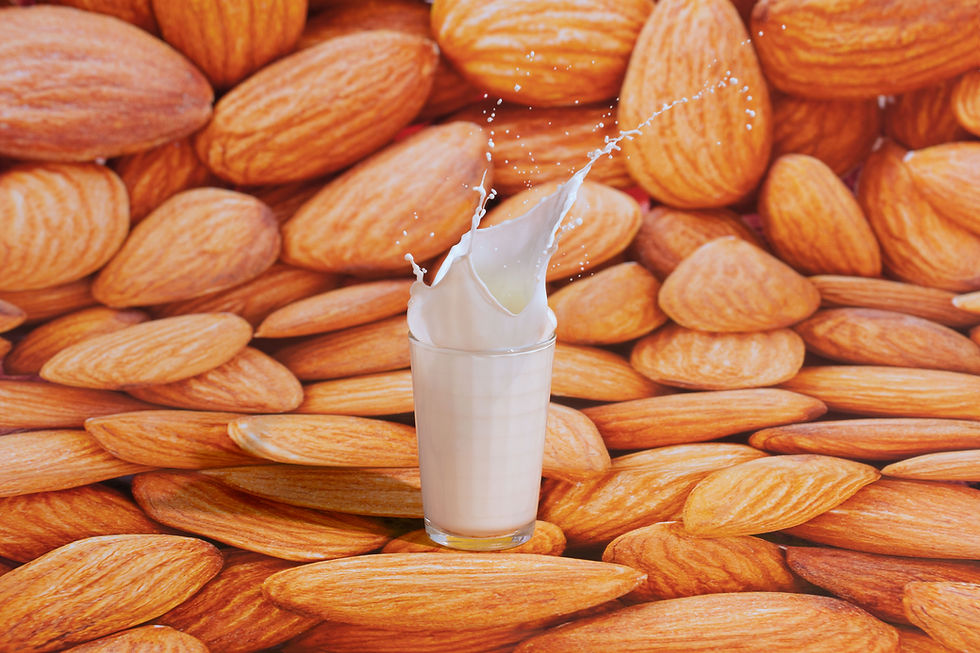The Delicious Link: How Nutrition Impacts Your Mental Health
- octopusdigitalserv
- Jun 24, 2024
- 4 min read
Updated: Jun 26, 2024
Discover how your diet affects your mental health. Learn about the link
between nutrition and mental well-being, and how to eat for a happier,
healthier mind.

Understanding the Connection Between Nutrition and Mental Health
The food you eat not only fuels your body but also plays a crucial role in
maintaining your mental health. The brain, like other organs, requires
specific nutrients to function optimally. Poor nutrition can lead to or
exacerbate mental health issues such as depression and anxiety, while a
balanced diet can improve mood and cognitive function.
The Science Behind Nutrition and Mental Health
● Brain Chemistry: Nutrients from food influence neurotransmitters,
which are chemicals that transmit signals in the brain. For example,
serotonin, which regulates mood, relies on the amino acid tryptophan
found in various foods.
● Inflammation: Diets high in processed foods and sugars can cause
inflammation, which has been linked to depression and other mental
health disorders.
● Gut-Brain Axis: The gut microbiome, which consists of trillions of
bacteria, communicates with the brain. A healthy gut microbiome,
supported by a nutritious diet, can positively impact mood and
cognitive function.
1. Omega-3 Fatty Acids: Champions for Brain Health
Imagine your brain cells like tiny factories constantly buzzing with activity.
Omega-3 fatty acids, particularly DHA and EPA, act as essential building
blocks for these factories' membranes. These fats ensure optimal
communication between brain cells and support the production of neurotransmitters, the chemical messengers that regulate mood, memory,
and learning.
Where to Find Them:
● Fatty Fish: Salmon, mackerel, sardines, tuna
● Plant-Based Sources: Flaxseeds, chia seeds, walnuts (consider
grinding them for better absorption)
Benefits: Research suggests omega-3s may help:
● Reduce symptoms of depression and anxiety
● Improve cognitive function and memory
● Enhance focus and concentration
2. B Vitamins: The Powerhouse Team
B vitamins are like a well-coordinated team, each member playing a vital
role in keeping your brain sharp and your mood balanced. Some key players
include:
● Vitamin B6: Contributes to neurotransmitter production and helps
regulate sleep cycles.
● Vitamin B12: Crucial for nerve function and maintaining a healthy
nervous system.
● Folate: Plays a vital role in mood regulation and cognitive function.
Where to Find Them:
● Leafy Green Vegetables: Spinach, kale, collard greens
● Legumes: Beans, lentils, chickpeas
● Eggs
● Fortified Cereals: Look for brands fortified with B vitamins Benefits: Getting enough B vitamins may help:
● Improve mood and reduce symptoms of depression
● Enhance memory and cognitive function
● Promote overall brain health and nervous system function
3. Antioxidants: Fighting Free Radicals for Brain Cell Protection
Free radicals are unstable molecules roaming your body, causing damage to
cells like tiny vandals. Antioxidants act as superheroes, neutralizing these
free radicals and protecting your brain cells from oxidative stress.
Where to Find Them:
● Fruits: Berries (blueberries, strawberries), oranges, kiwi
● Vegetables: Dark leafy greens (spinach, kale), bell peppers, carrots
● Nuts and Seeds: Almonds, walnuts, chia seeds
● Dark Chocolate: Choose varieties with at least 70% cocoa content
Benefits: Antioxidants may help:
● Protect brain cells from damage
● Improve memory and cognitive function
● Reduce the risk of age-related cognitive decline
4. Amino Acids: The Building Blocks of Neurotransmitters
Imagine neurotransmitters as messengers carrying signals between brain
cells. Amino acids are the building blocks for these messengers. While your
body can synthesize some amino acids, others must be obtained from your
diet.
Where to Find Them:
● Protein-Rich Foods: Meat, poultry, fish, eggs, dairy products
● Plant-Based Sources: Beans, lentils, nuts, seeds
Benefits: Getting enough amino acids may help:
● Support the production of neurotransmitters like dopamine and
serotonin, key players in mood regulation.
● Enhance cognitive function and memory
● Promote overall brain health
Foods that Boost Mental Health: Feed Your Mood
Now that you know the key nutrients, let's explore some specific foods that
can be incorporated into your diet for optimal mental well-being:
● Leafy Greens: Packed with folate and antioxidants, these green
superstars support mood regulation and cognitive function.
● Fatty Fish: Don't underestimate the power of a salmon dinner!
Omega-3s from fatty fish can significantly impact brain health and
mood.
● Nuts and Seeds: These tiny powerhouses are full of omega-3s,
antioxidants, and fiber, promoting a healthy gut and brain.
● Fermented Foods: Yogurt, kefir, sauerkraut, and kimchi are rich in
probiotics, which contribute to a healthy gut microbiome, linked to
improved mood and reduced anxiety.
Remember:
● Processed Foods and Inflammation: Processed foods often contain
unhealthy fats, additives, and preservatives that can trigger
inflammation in the body. Chronic inflammation can negatively affect
brain function and increase the risk of mental health disorders. Opt for
whole, unprocessed foods whenever possible.
● Balance is Key: Aim for a well-rounded diet that incorporates a variety
of these nutrient-rich foods. Don't get hung up on perfection; small,
sustainable changes can make a big difference.
Practical Tips for a Brain-Healthy Diet
Implementing small changes in your diet can have a significant impact on
your mental health.
Eat a Balanced Diet
Focus on a diet rich in whole foods, including fruits, vegetables, lean
proteins, whole grains, and healthy fats. This balance ensures you get the
essential nutrients your brain needs.
Stay Hydrated
Dehydration can affect your mood and cognitive function. Aim to drink
plenty of water throughout the day to stay hydrated.
Limit Sugar and Processed Foods
Reduce your intake of sugary snacks, sodas, and processed foods. Opt for
healthier alternatives like fruits, nuts, and whole grains.
Include Probiotic-Rich Foods
Incorporate probiotic-rich foods into your diet to support a healthy gut
microbiome. Dahi (Curd), Kanji, Aampa, Pappad, Solkadi, Pachadi are
excellent choices.
Conclusion
Your diet plays a crucial role in your mental health. By understanding the
link between nutrition and mental well-being, you can make informed
choices to support a healthier mind. Focus on a balanced diet rich in
essential nutrients, limit your intake of sugar and processed foods, and
remember that small changes can lead to significant improvements in your mental health. Eating for your brain is not just about physical health—it's
about nurturing your mental and emotional well-being too.




Comments